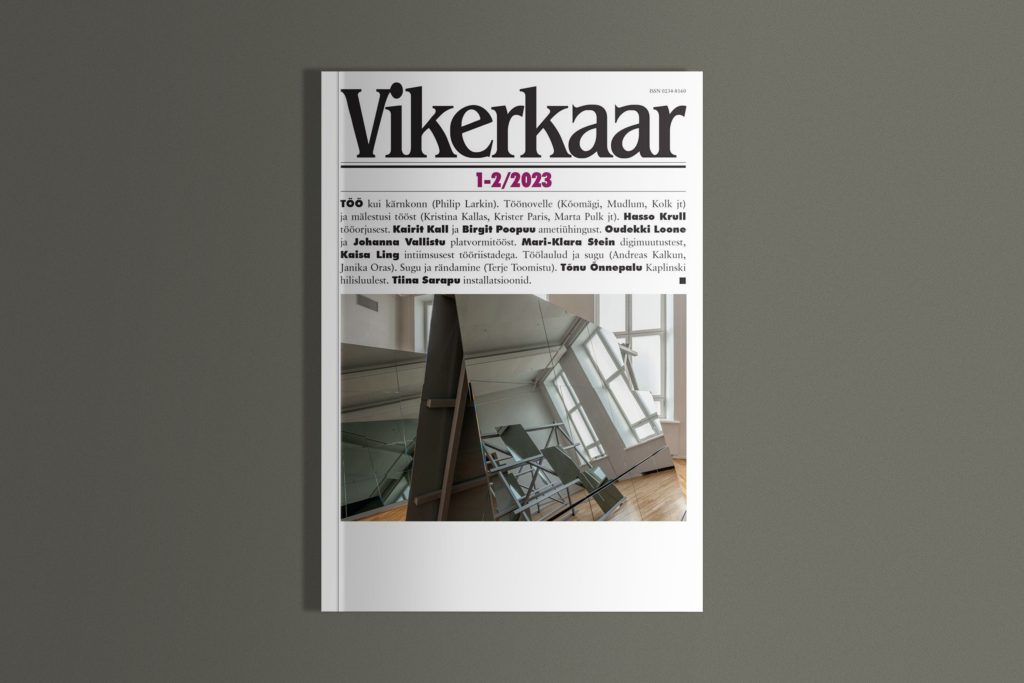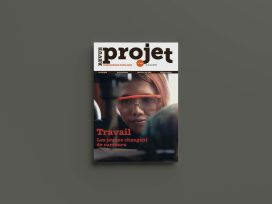Work, work, work. It occupies half of our waking lives, might be disrupted by automation, is almost certainly underpaid, and could be the thing that defines the human condition. Vikerkaar looks at the past, present and future of work: traditional working songs, jobs people held in the wild 1990s, trade unions, digitalization, intimacy with tools, migration, the gig economy, and much more.
A future for Estonian trade unions?
Only 6% of employees in Estonia are members of a union. This is one of the lowest percentages in Europe, made even more dramatic by the fact that in 1992, that number was 94%. Kairit Kall traces this rapid fall in union membership to a series of structural and institutional changes: neoliberal policies, lack of sectoral bargaining, and the association of unions with the socialist past, which reduced their prestige and eroded practices and traditions of resistance. Though the government is nominally committed to tripartism (cooperating with business interest groups and trade unions), the reality has turned out to be rather different.
‘Trade unions were weakened by the 2008–2009 economic crisis’, when the government decided to completely ignore many tripartite agreements. A new labour law, agreed to by the social partners, ‘was supposed to institute the principles of so-called “flexicurity”: on the one hand making it easier to lay off workers, but at the same time increasing unemployment eligibility and benefits. The government, however, decided to renege on the second promise, thus giving us flexibility, without the security.’ Kall calls this a prominent example of ‘illusory corporatism’.
How to fix the gig economy
The digital transformation of work has largely been deemed a net loss for labour. While it can empower highly specialized workers to become digital nomads, for most workers the gig economy means employee misclassification, lack of employment protections, uncertain hours and opaque algorithms deciding when and if you get gigs in the first place.
Johanna Vallistu asks if there are ways to make digital platforms work for labour. States could decouple social protections from employment, she argues, thus guaranteeing that even ‘self-employed’ Uber drivers have access to healthcare. Indeed, states themselves could create platforms that facilitate employment, but bring them under democratic control.
‘For instance, the gig economy has positively impacted the genderedness of domestic labour. Better availability of cleaning services and food delivery has reduced the time women spend on unpaid housework. It is not unthinkable that states could use employment platforms to offer, for instance, on a voucher basis, elder care, emergency childcare or even soup kitchens, so that access to gig economy services would be available to marginalized groups as well.’

Familiar things
Kaisa Ling takes seven tools she finds in her bag – a pen, a screwdriver, a kazoo, a lip-brush, a Swiss army knife, a syringe and a phone – and attempts to explore the intimacy she has with them. With detours via the works of star-philosopher Bruno Latour and star-couples therapist Esther Perel, she finds the exercise more difficult than it initially appears.
‘I would be lying if I said that I had no sense of closeness with this device I’ve had for five and a half years, made to serve the economic interests of a megacorporation,’ she writes of her iPhone. ‘I know her curve. Her clicks and tricks, all the scratches that her existence with me has left on her surface. I’m consoled, just a little bit, by the knowledge that in smartphone-years, she is ancient. I’ve fixed her up several times, switched out components that have stopped working, helped her last. The plastic-fork etiquette of objects tells us that only a new thing is valuable, only a tool that works fast is efficient, and the residual value of electronics declines about as fast as that of the plastic fork itself.’







